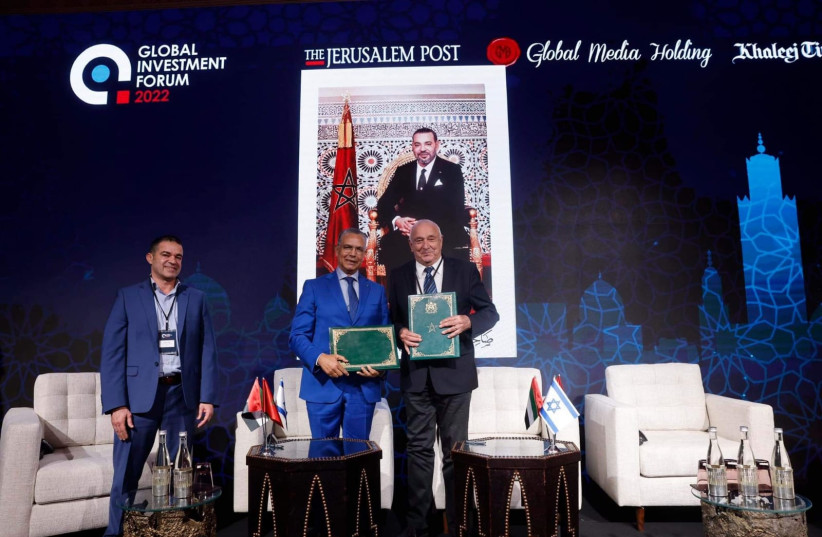The program encourages entrepreneurism and innovation around solving four of the most significant challenges of the desert.
Published: JULY 22, 2023
Israel and Morocco will sign a memorandum of understanding to collaborate on sustainability projects at the UN Climate Change Conference (COP28) in Dubai later this year, according to the Environmental Protection Ministry.
The announcement of the MoU came at the conclusion of the High-Level Political Forum on Sustainable Development held in New York from July 10-19, with a special Economic and Social Council forum on July 20.
Environmental Protection Minister Idit Silman and colleagues from Morocco and Bahrain attended the event.
“We are deepening environmental cooperation with Morocco and Bahrain within the framework of the Abraham Accords,” Silman said following a meeting with Leila Benali, minister of energy transition and sustainable development of Morocco.
The two ministers have held previous talks. The meeting came on the heels of Israel’s announcement that it would recognize Morocco’s sovereignty over Western Sahara, which led to an invitation from King Mohammed VI to Prime Minister Benjamin Netanyahu to visit the country.
MOU between Israel, Morocco will enable collaboration in drinking water, liquid sanitation. (credit: MARC ISRAEL SELLEM)
Silman and Benali said Israel’s DeserTech community will sit at the center of the countries’ collaboration. The program, established three years ago, encourages entrepreneurism and innovation around solving four of the most significant challenges of the desert: extreme temperatures, water scarcity, remote communities ,and soil degradation.
The program enjoys $3 million in annual investment from the Merage Foundation and the Environmental Protection Ministry. It is headquartered in the Negev Desert, with the Beersheba Municipality, Ben-Gurion University of the Negev, Soroka Medical Center, the Merage Foundation, and the Israel Innovation Institute jointly running it.
“The project offers innovative solutions to climate challenges in a desert environment,” Silman said. “However, beyond the solutions formulated within its existing framework, the program will become a model for other desert areas in the world as part of the environmental cooperation in the Middle East.”
Great Green Wall
Specifically, the project could play a critical role in the “Great Green Wall” initiative, a pan-African initiative designed by the UN. The 8,000-km. “wall” is meant to span 11 countries and include planting new trees to restore more than 100 million hectares of degraded land due to desertification.
Earlier this year, representatives of several of the Great Green Wall countries came to Israel. They participated in a joint program between the DeserTech Community and the United Nations Convention to Combat Desertification to find innovative solutions to tackle their most critical desert-related challenges.
Last week, during his visit to Washington, President Isaac Herzog and US Vice President Kamala Harris announced a $70m. joint climate initiative focusing on research and implementation of advanced technological solutions to achieve food security for countries across the Middle East and Africa.
Herzog’s Presidential Climate Forum has reported that tackling climate change through a regional and global lens could foster increased regional stability, expand Israel’s circle of peace and normalization, and provide greater prosperity.
In Silman’s meeting with Noor Ali Al Khulaif, Bahrain’s minister of sustainable development, the leaders likewise discussed climate cooperation. The countries already signed a historic agreement of cooperation in the field of agriculture in October 2022. Silman’s office now said they discussed practical collaborations that could be implemented, including working with DeserTech.
Silman and Al Khulaif also discussed other environmental issues important to their countries, including maintaining biological diversity, renewable energies, air quality, and waste treatment.
Silman also met with Hon. Rainbo Paita, Papua New Guinea’s finance & rural development minister.
https://www.jpost.com/environment-and-climate-change/article-752024

